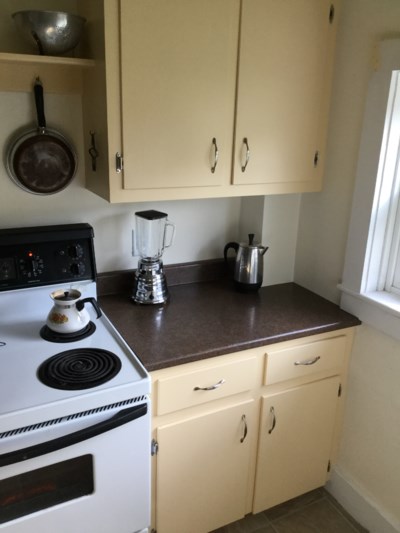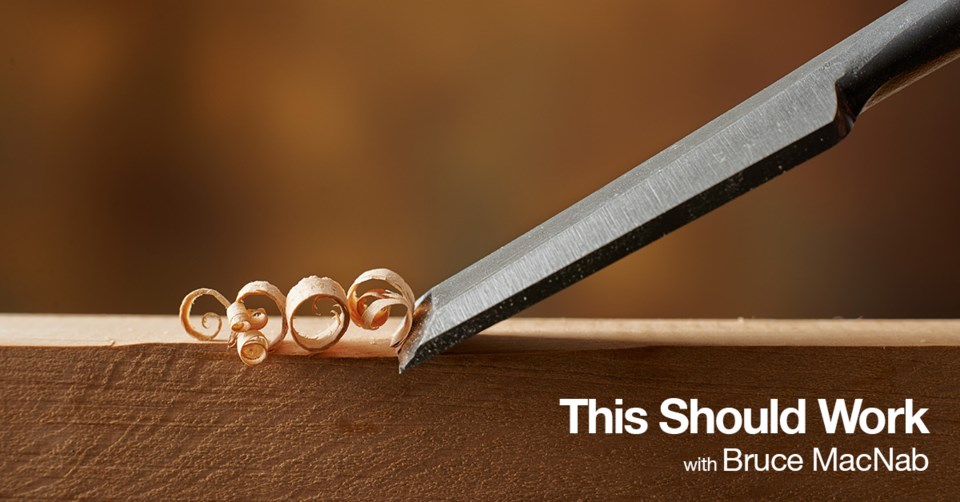Did you watch the Beatles live on the Ed Sullivan Show? Do you remember when the Six Million Dollar Man fought Bigfoot? If so, you’ll remember lipped cabinet doors made from plywood.
From the 1950s until the 1980s plywood kitchens were built by local carpenters. Since then, most of these kitchens have been replaced with melamine cabinets and raised-panel doors.
 Lipped plywood doors are architecturally pleasing and easy to clean. Photo by Bruce MacNab
Lipped plywood doors are architecturally pleasing and easy to clean. Photo by Bruce MacNabMelamine is okay for cabinet boxes and shelves because it’s cheap and easy to clean. But I’d be happy if I never again saw another raised-panel door with their dust-collecting ledges and their cracks that catch kitchen spills. This is why I went back to flat doors for my new kitchen.
Traditionally, plywood kitchen doors were rabbeted to create an edge lip, meaning a small strip of material was removed from the edges of the doors. This strip was roughly the width of a chopstick.
The lip allows the door to fit into the framed openings, leaving only half of the plywood edge exposed which was rounded to prevent chips and splinters.
You can round over the edges with a router then lip the doors with a table saw. I did both operations with a router. Decades ago carpenters made both cuts at the same time with a moulding cutter mounted on a radial arm saw.
You need special offset hinges for lipped doors. There was a time when you had to install latches or catches to keep the doors shut. Nowadays you don’t need catches because somebody invented self-closing cabinet hinges.
Paint the doors before you install them so you don’t have to paint around hinges. Put on heavy coats of latex cabinet paint to copy the look of the old-school oil paints. Remember to lay the doors flat while the paint dries or you’ll get drips and runs.
The plywood edges need special attention. Put extra paint on the edges and sand between coats. Use wood filler for any voids.
I painted my doors outside on dry sunny days. The sun melted away most of the brush strokes leaving a flat finish that looked like it was applied with a spray gun.
Back in the day, these kitchen doors were fitted with simple chrome handles that were easy to clean, just like the painted plywood.
If you’re a poor housekeeper like me you’ll appreciate how easy it is to wash flat kitchen doors. Ever since I finished these cabinets my kitchen is cleaner than ever. In fact, it’s so clean you can eat off the plates.
Bruce MacNab, a Red Seal carpenter, has taught carpentry courses for NSCC and the Guysborough County Adult Learning Association. Visit him online here.
